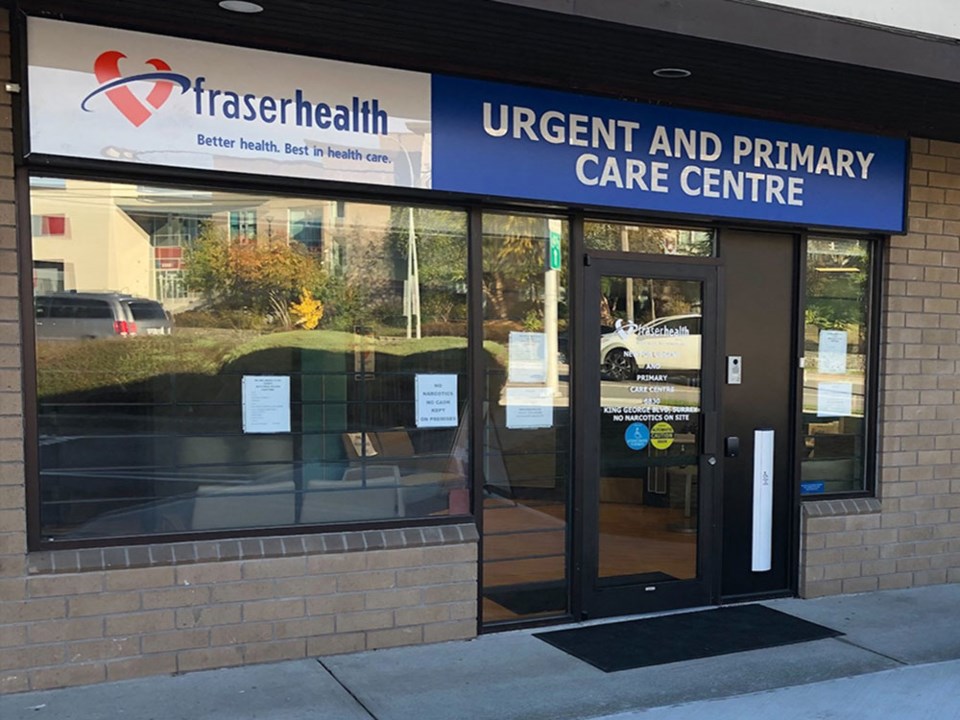The BC Liberals say the NDP government has failed to fix the family doctor crisis and an independent review of access to urgent health care is needed.
Shirley Bond, MLA for Prince George-Valemount and BC Liberal health critic, called this week for an independent audit of the effectiveness of the government’s expanded Urgent and Primary Care Centres. Bond pointed to unprecedented emergency room wait times, staff shortages and emergency room closures across the province.
Their proposal comes on the heels of the Liberals’ call for Health Minister Adrian Dix to resign in the wake of reports a woman died waiting in the emergency room of Lions Gate Hospital in North Vancouver last weekend. She is the third person in B.C. to die waiting for emergency care in the last year.
Since 2018, the NDP government has opened 26 health authority-run Urgent and Primary Care Centres, where teams of family doctors, nurses, nurse practitioners and other health-care providers see patients for same-day urgent but non-emergency health concerns.
Dix has said the centres are a way to address B.C.’s shortage of family doctors while providing consistent care and diverting patients from emergency rooms. Nearly one million people, or one in five British Columbians, don’t have a family doctor.
But the centres have been plagued with staff shortages, causing them to close on occasion. The BC Liberals say government reports show the care centres are, on average, staffed with about half the doctors budgeted at any given time.
Only about 20,000 patients are attached to the clinics.
“Over and over again we see that UPCCs can’t keep staff, are falling short of their goals to attach patients, and are too often at capacity only a few hours after opening,” Bond said in a news release.
She said a similar system in Manitoba created more “inconsistency in the continuum of care” and did not reduce emergency room wait times.
“It is time for the NDP to acknowledge these shortcomings and organize a comprehensive audit to investigate exactly what is going wrong and determine what changes need to be made to begin meeting the basic health care needs of British Columbians,” Bond’s statement said.
The Health Ministry did not respond to a request for comment by publication time.
But Dix has recently defended his approach to the crisis in primary and acute care across B.C.
Earlier this month, emergency rooms in five small Interior communities closed due to staff shortages Dix attributed to staff being out sick.
Approximately 15,000 to 17,000 staff of 126,000 public health-care workers are off sick in a given week, nearly double pre-pandemic illness levels.
Health authorities and the province are working to recruit and retain more staff in smaller communities, Dix said at a media availability in Kamloops last week.
“We’re focusing on recruitment every day in these communities,” he said.
BC Green Leader Sonia Furstenau said the government isn’t acting urgently enough to address the care crisis.
Furstenau and MLA Adam Olsen have been touring the province to hear about the state of health care.
They’ve heard “a lot of frustration about UPCCs, from doctors and from people trying to access them,” Furstenau said.
She said the Urgent and Primary Care Centres model is flawed, and likely making staff shortages and long wait times worse.
“We know that people that have that longitudinal care that you get with a family doctor, that that translates into better health outcomes, less use of emergency rooms and people getting more preventative care,” said Furstenau, MLA for Cowichan Valley. “And the UPCCs aren’t providing that.”
But Furstenau said an audit of the centres, as the BC Liberals want, isn’t the answer.
“What we don’t need is time spent, right now, on what’s going wrong,” Furstenau said in an interview. “We just need to really work on the solutions that do work.”
In Furstenau’s view, that means health professionals, not health authorities, running community care clinics. Shoreline Medical clinic in Saanich, for example, is run by a non-profit organization and cares for around 10,000 patients.
“We should look at that and say, ‘Let’s replicate that,’” said Furstenau. “UPCCs should be handed over to non-profits and doctors and nurse practitioners working as team, so that they can be delivering health care in their communities.”
And she said if Dix isn’t willing to do what is needed to restore the province’s health-care system, he should step aside for someone who will.
“What’s necessary is that this government focuses on the outcomes and on making sure that more people are getting good care,” Furstenau said.



